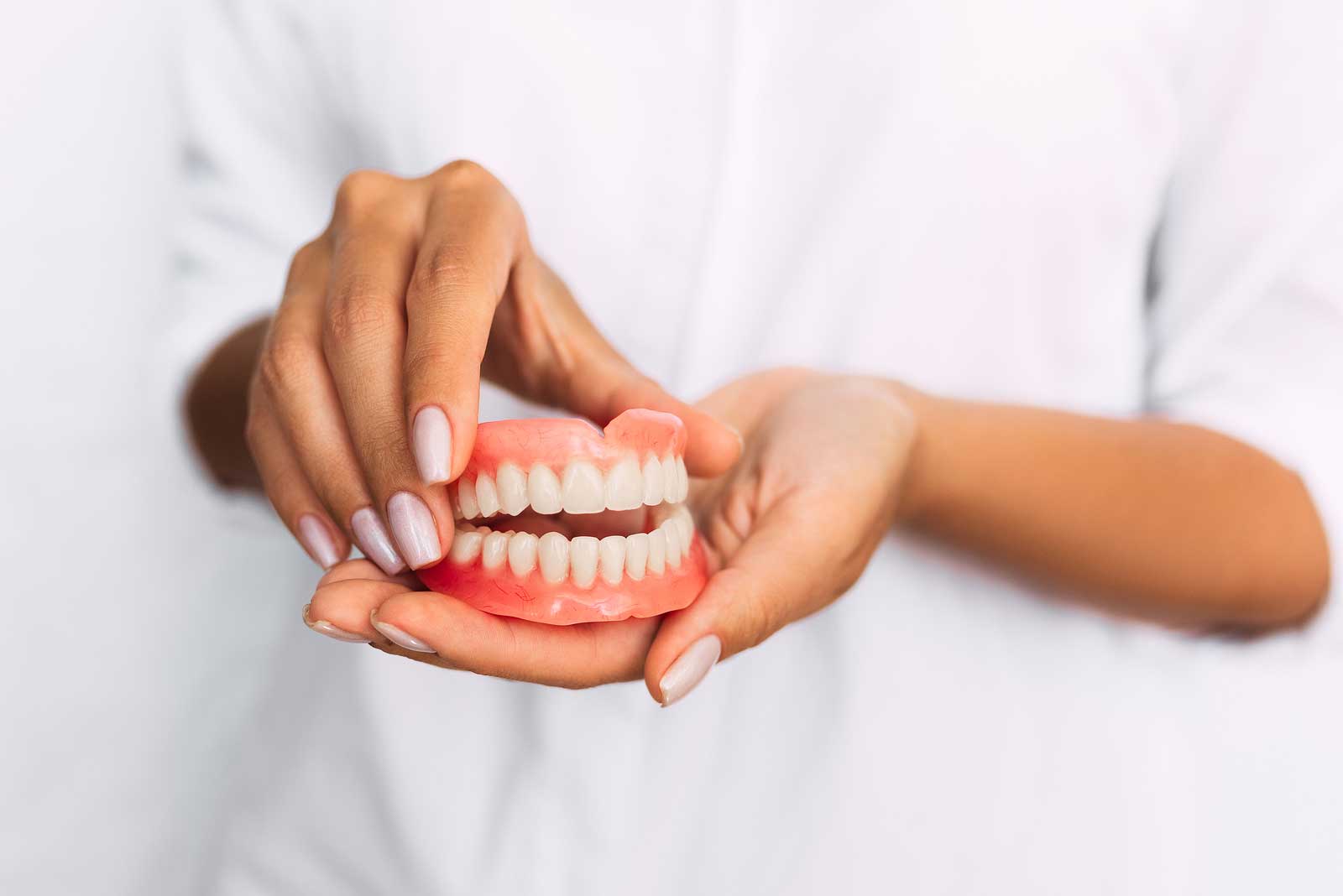Dentures
Tooth loss is a very common phenomenon. You may lose some or all your teeth to injury, diseases, or decay. Dentures are dental prostheses that replace missing teeth. These custom-made replacements closely mimic the appearance and the functions of the natural teeth. They also provide support to your cheeks and lips, preventing them from sagging. There are two types of dentures:

Full dentures
Complete or full dentures are used when all your teeth are heavily damaged and cannot be saved. You have a denture for both the upper and the lower jaws. The upper denture caps the palate while the lower denture is given a U-shape to accommodate the tongue.
Partial dentures
Partial dentures are used when some natural teeth remain. They rest on a metal framework and are anchored to the natural teeth. These natural teeth provide durability, support, and stability to the denture.
The procedure
Your doctor will take a comprehensive examination of the mouth to check oral health. All the damaged teeth will be removed by your dentist. After tooth extraction, the gums are allowed to heal for 12 weeks. You will be provided an immediate denture for restoring the basic tooth functions.
X-rays and scans will be performed to measure the space between your jaws. Your dentist will take measurements to determine how your jaws link to each other. Acquired impressions will be sent to the dental laboratory for fabricating the denture. Initially, wax and plastic models are made to test the color, shape, size, bite, and, alignment of the denture. You will try these wax models to help your dentist choose the best fit for you. A final cast is fabricated only after the necessary adjustments have been made.
You receive your denture after the gums have healed and are ready to support the prosthetic device.
Dentures: Aftercare
Initially, it is common to experience discomfort, extreme salivation, and fullness in the mouth. It will take time to become familiar with your new denture. You might also experience difficulty in chewing, speaking, and biting. The following aftercare tips will make you feel at ease.
- During the first week after the treatment, limit your diet to soft foods and lukewarm fluids. Rinse your mouth with warm saltwater.
- Rinse your denture regularly under cold water and scrub it using a denture brush. Regular cleaning removes plaque, stains, and food particles.
- When you are not wearing your denture, submerge it in cold water or cleanser soaking solution. Never let your denture dry out.
- Brush your gums, tongue, and palate using a soft-bristled toothbrush. It promotes blood circulation in the area.
- You will experience sore spots, shrinkage of gums, and in the first few months. Visit your dentist for a reline.
To have a consultation with our dentists, please schedule an online appointment or call us at (773) 880-5080, and we will be happy to help.
2845 N Sheridan Rd #914
Chicago, IL, 60657
Stone Dental Group-SE Chicago Dentistry
2845 N Sheridan Rd #914
Email: [email protected]
Tel: (773) 880-5080
MON : 9:00 am - 5:00 pm
TUE - WED : 10:00 am - 7:00 pm
THU : 9:00 am - 5:00 pm
FRI : 9:00 am - 4:00 pm
SAT : 9:00 am - 3:00 pm
SUN : Closed
